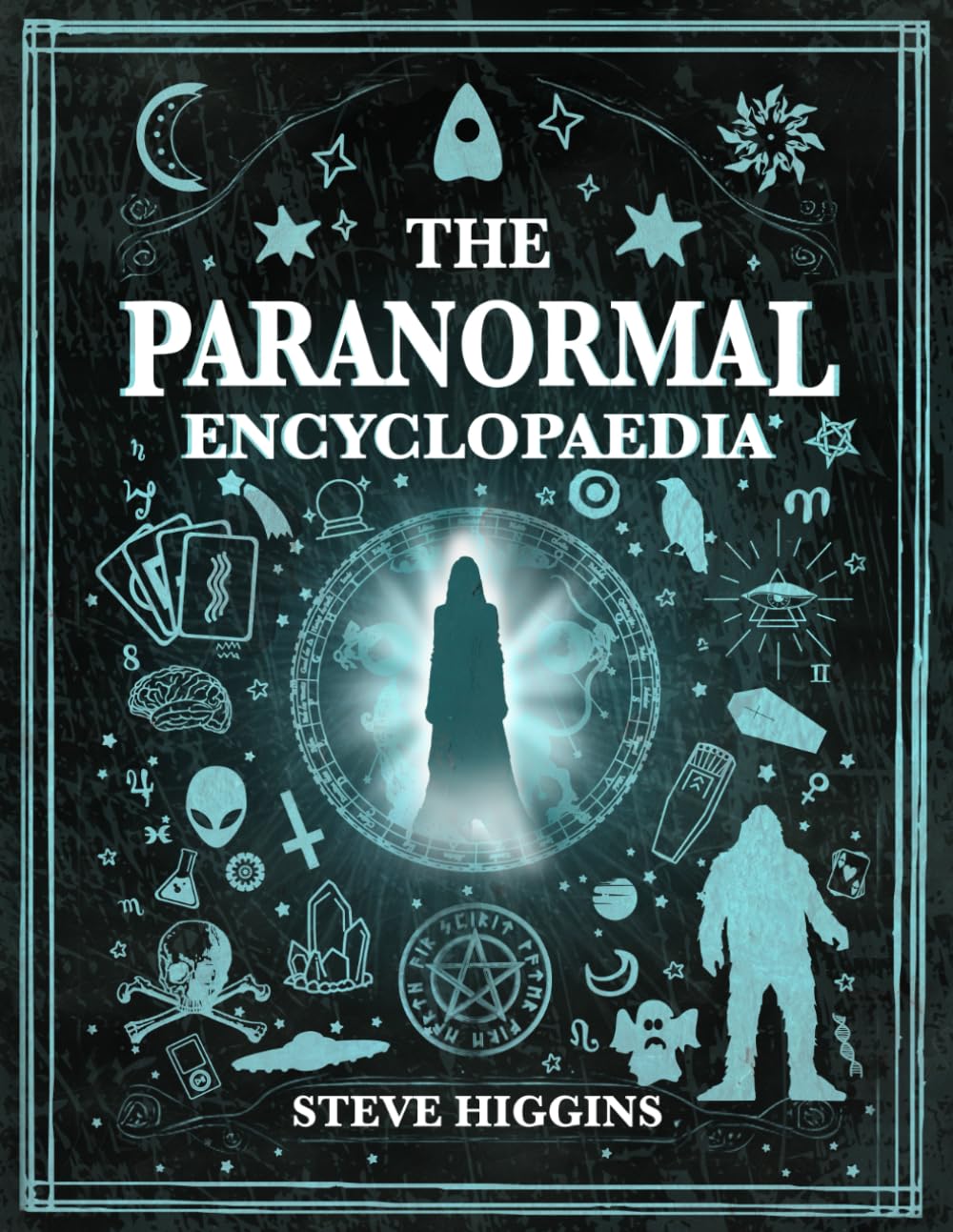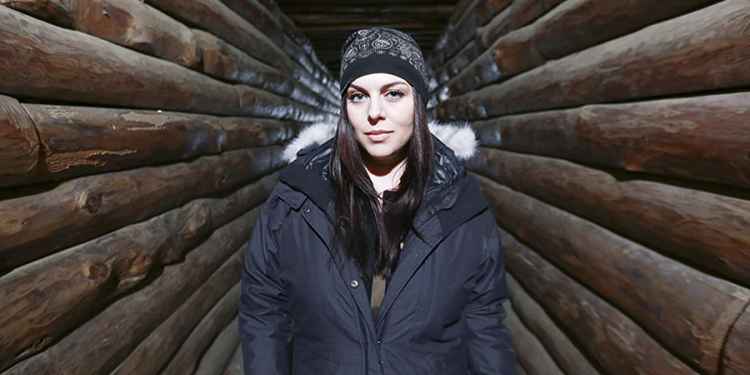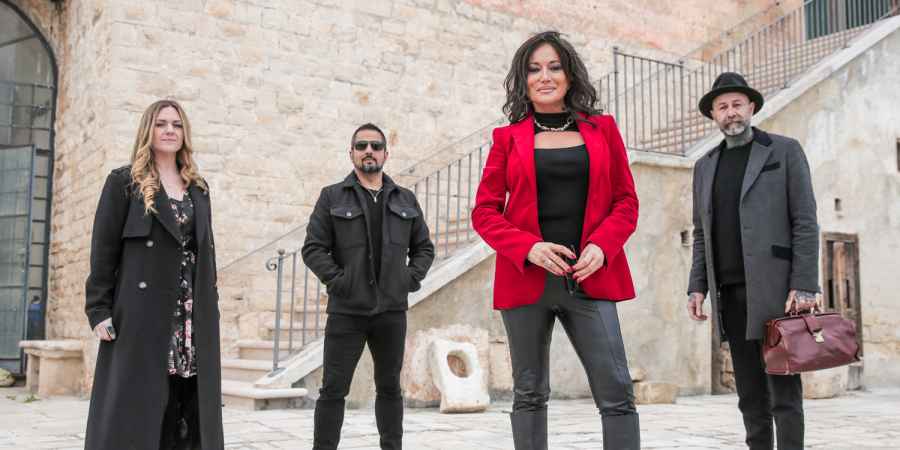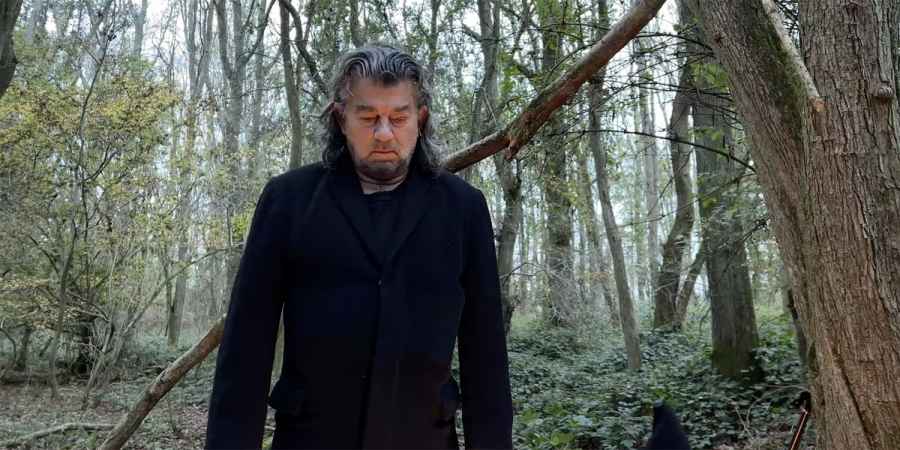
Photo: YouTube

Photo: YouTube
Reality and Fiction have blurred together many times on TV and media. This is one of the very first cases that gained mainstream attention before the BBC made attempts to cover it up. This is the story of 'Ghostwatch'.
'Ghostwatch' was a TV Programme that aired on 31st October 1992, appearing to be a live broadcast going horribly wrong. Gaining 20 - 30,000 phone calls all at once while it was live.
This video was produced by YouTube channel, Inside A Mind, and is supported by Audible. Click or text insideamind to 500500 to get a free Audiobook, two free Audible Originals, and a 30-day free trial.
Video Transcript
In 1992 the BBC broadcast one of the most controversial shows it would ever have in its entire history, spawning more than 30,000 phone calls in just the space of an hour, along with the first ever reports of children being diagnosed with PTSD from a TV programme.
In October of 1988 a horror writer known as Stephen Volk pitched a six-part supernatural series featuring a young female presenter exploring haunted houses throughout Britain. He wanted to present the final episode in the style of a live broadcast where everything would go horribly wrong and the supernatural would take over.
His agent later came back asking if it was possible to condense the six-part series into a one-hour special to air on Halloween night. Stephen agreed but suggested they do it like episode six and have it set like a live broadcast, giving the illusion that it was real.
Stephens reasoning was that the scariest or most enjoyable stories he read or saw on-screen when he was a kid were tales that presented themselves as if they actually happened, like Bram Stoker's Dracula. The story is completely fictional but the book is structured in a way that gives us the impression these events actually happened. After discussing this with his agent, she was excited by the idea and production for 'Ghostwatch' was finally underway.
Stephen wanted to add even more to the realism of 'Ghostwatch' by getting celebrities everyone in the UK would know playing themselves. He brought in Michael Parkinson as the host who will be watching the events unfold from the studio. Michael was a well-trusted TV and radio presenter at the time.
The young reporter on the scene investigating the haunted house will be played by children's presenter, Sarah green, whose husband Mike Smith apparently read the script too and loved it so much that he asked if he could be in it as well. Stephen Volks jumped at the opportunity to have a husband and wife dynamic on the show, he will be taking viewers phone calls in the studio along with Michael Parkinson.
There was also a third performer for the show, Craig Charles, who was currently on the hit UK sitcom 'Red Dwarf'. Something like this had never really been attempted before. This was before the internet. Before even the 'Blair Witch Project' came out along with the found-footage genre.
Reality and fiction had been separated for the most part on TV, you could definitely tell when one show was science fiction and another was a documentary or a news program on real-life events, but over time that gap between the two slowly started shrinking. Being able to see what was real and fiction were becoming harder. A big example of this would be during 1977, arguably 'Ghostwatch's' biggest inspiration, the Enfield Poltergeist, where a BBC documentary took place in a council house in Brimsdown, after a mother of two daughters claimed to be experiencing paranormal activity.
The poltergeist seemed to have latched on to the door to Janet, having recordings of her speaking with the voice of a man, and pictures of her levitating in the air, but throughout the investigation more things came to light making the whole thing a lot more questionable. At one point a camera had supposedly spotted Janet in the kitchen bending spoons and trying to bend an iron bar, along with photos that could suggest she wasn't actually levitating but rather jumping. Some skeptics reminded everyone that Janet was a school sports champion at the time.
The idea that this could be real or completely fake was fascinating, it had people engaged and investigating themselves. Tuning in and watching the kids and every move during their interviews, seeing if they could spot a mistake that would help them confirm whether or not the two girls were telling the truth.
Having that skeptic mind that not everything you see on TV is real was something Stephen Volk was wanting to convey with 'Ghostwatch', because television was at a transitioning period at the time, taking certain pieces of the truth and adding
elements of fiction, very similar to what we see now with news and media.
Trying to explain this to the producers at the BBC though became a chore, as there were no known examples available at the time to help explain exactly what they were trying to do. Many of the producers were hesitant with the thought of presenting something fictional as completely real, so they suggested the only way they're going to allow this show to happen is if
they take some precautions before it airs, the first one being that they add writing credits at the end, along with the BBC announcer mentioning that it's a fictional story before the show begins, and with the BBC studio 'Screen One' intro appearing at the beginning.
Within the special there was also going to be a phone number the audience could call up and talk about their ghost experiences. The BBC made a pre-recorded answering machine that explained the whole thing was fictional, before asking them to go on and tell their paranormal stories. There was also a section added in the Radio Times before the premiere where the creator's explained it was a drama piece they created for Halloween.
The teasers and promos for the show were also promoted as a drama. The only place where it didn't tell you it was fiction
was the episode itself.
At 9:25 p.m. on the 31st of October, 1992 'Ghostwatch' aired to 11 million people, one of the highest viewing figures ever for a stand-alone UK special. However, for the next hour the BBC estimated around 20 to 30,000 phone calls were all coming in at once, causing the BBC switchboard to be jammed, meaning the pre-recorded message telling viewers it was all fictional no longer played for future callers.
Michael Parkinson introduces us to the show explaining how they'll be spending the night in a haunted house on the outskirts of London live. The phone lines are now open and anyone can call in. Visiting the location, the house itself is currently lived in by a family of three, a mother and two daughters, who have all witnessed several paranormal experiences.
We're introduced to create Charles and Sarah Greene, who explained to us how all the ghost hunting equipment was going to
work before speaking to the family about their paranormal experiences. Meanwhile, back at the studio we get a call from someone who claims they saw something strange during the footage of the girls in the bedroom.
Playing the footage back, we can clearly see some kind of figure stood by the curtain, while the children sleep but when the paranormal investigator asks for the footage to be played back again the mysterious figure is missing, before rewinding it back for a third time to reveal that it may have just been a dressing-gown. This isn't the only time we witness a mysterious figure appearing in the background of shots. Throughout the entire special we see something lurking around waiting for its moment. At one point during the special Michael Parkinson and the paranormal investigator began listening to a
recorded tape from one of her previous investigations, while trying to communicate with ghosts. For a brief shot, we can make out a figure standing right behind her.
As the time passes 10 o'clock, Sara takes the children to bed, while Craig interviews several of the neighbours who have heard mysterious goings on about the house, or they just simply have their own paranormal experiences to share.
Back at the home we hear a huge banging sound coming from upstairs. One of the girls is missing from their bed. They use the landing cameras to pan around quickly and see the truth. The story wasn't over yet, while everyone seems to believe the
haunting is now an open-and-shut case, Mike Smith, who's been handling the phone lines claims there was still reports
coming through about the mysterious figure being sighted throughout the special, all from completely different people, but all with the exact same description.
As they travel back to the scene, the show begins to derail into madness. Following the sound of cats screaming from the basement, all the way to technology issues taking place, followed by a caller coming online to explain the real story behind the haunting and who the ghost really wants.
The footage ends with the studio falling into darkness and Michael Parkinson being fully taken over by the spirit who's been haunting the whole show. As he slowly walks towards the camera, while the screen turns to black.
In less than 12 hours, every newspaper you could think of in the UK were reporting on 'Ghostwatch' and how so many people were shocked and horrified by what they saw. Many people called in to the BBC expressing their disgust, others saying they were having paranormal experiences while the show was airing. Apparently one woman, according to Stephen himself, called into the studio asking for compensation for a new pair of trousers because her husband soiled himself while watching the show.
Another caller was from a vicar, who said he knew it wasn't real but by airing it on TV they somehow summoned real demons.
Stephen was also heckled by a woman from his local off licence expressing her anger about her son being too scared to
sleep.
Despite having many comical responses to the show, one of the worst things to come from all of this was the tragic death of a young boy known as Martin Denham, aged 18. He had a mental age of 13 and was a slow learner, but five days after watching the programme he took his own life with a suicide note saying "if there are ghosts, then I will be with you always as a ghost".
Martin's home had faulty pipes which made the same banging noises as described in the original program. This of course fuelled the ammunition of the already angry mob, causing the BBC to backtrack and pull all mentions of 'Ghostwatch' from the general public.
Allegedly 'Ghostwatch' was nominated for a BAFTA that very year, but the BBC made efforts to have it removed and never mentioned. The Radio Times was also ordered by the BBC to never mention it again. Stephen would later work on future paranormal shows for the BBC, but not once would 'Ghostwatch' ever be brought up during those productions.
It only got worse for the BBC. A report came out two years later mentioning 'Ghostwatch' and how some children had been diagnosed with PTSD from that very show, making it the very first program to have reportedly caused something like this.
For nearly a decade the BBC pretended like the show didn't exist, that is until the internet forums introduced themselves. A fan base for the show began to appear online. People claiming they watched the show as a kid, and while they were still traumatised, they weren't angry at the show for scaring or giving the illusion that it was real. In fact they loved it for that very reason, some even inspired by it, causing them to venture into the film industry as a job once they were old enough, or their favourite genre in movies became horror.
Suddenly a completely different side of the audience was coming to the surface. On its 10-year anniversary, the BBC finally acknowledged its existence and announced a DVD release, along with an essay written up by Stephen Volk himself, published by the Fortean Times, explaining his personal side of the story.
'Ghostwatch' is a fascinating case study into how easily people can be trusting in media and television. Stephen himself
said in his essay about ghost watch that he wanted the show to be a message on modern TV and what it's becoming, how that line between reality and fiction is becoming more and more blurred. A documentaries main focus is about telling an interesting story, and facts are just a bonus if you even have them. News outlets are more focused on what makes a good headline, rather than the context of the story.
Shows like 'Ghostwatch', 'The Blair Witch Project', 'Marble Hornets' are a certain type of media a lot of people watch when they were young, and just like the Enfield haunting, they were looking at the screen intentatively trying to figure out if it was real or fiction.
To this day the BBC have never aired 'Ghostwatch' again.
Further Reading
Dive into the world of the paranormal and unexplained with books by Higgypop creator and writer Steve Higgins.

The Paranormal Encyclopaedia
A comprehensive encyclopaedia of over 200 unexplained topics, from mind reading to Ouija boards.
Buy Now
The Ghost Lab: Paranormal Meets Science
A critical examination of ghost hunting tools and their scientific foundations.
Buy NowMore Like This

Katrina WeidmanJune 19, 2025
Katrina Weidman Joins The 'Help! My House Is Haunted' Team For New Celebrity Series

Celebrity Help My House Is HauntedJune 18, 2025
'Celebrity Help! My House Is Haunted' Returns This November With Six New Famous Faces

GhostsJune 10, 2025
Can A Ghost Write On Paper?

HorrorJune 07, 2025
Filmmaker Claims To Have Discovered Exact Location Of The Holy Grail
 See More on Audible
See More on Audible
Comments
Want To Join The Conversation?
Sign in or create an account to leave a comment.
Sign In
Create Account
Account Settings
Be the first to comment.